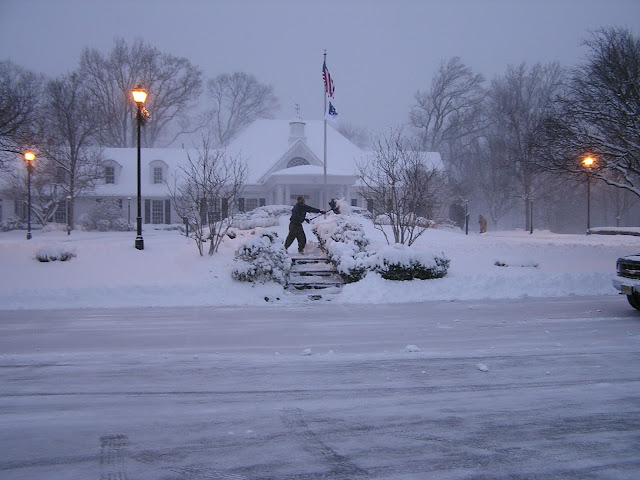 |
| Employees take part in training specifically focused on golf course safety. |
When you stop and think about it, there are plenty of hazards (besides bunkers) on the golf course. What may immediately come to mind when you think about this, are sharp, spinning mower blades. And yes, while they definitely are one hazard, there are a number of other potentially dangerous things we must be aware of every day.
How about slippery surfaces? In the winter, snow and ice can make the footing treacherous, while during the summer, we need to tread lightly when the turf is dew covered in early morning. Almost everyone who has cut greens for any period of time, has slipped while making a turn at the end of the pass.
Lifting heavy objects is also something that must be done on a regular basis when working at a golf course. We receive many products on pallets that are used on the course, including fertilizer, seed, and bagged topdressing sand. In order to avoid injury, employees must use proper lifting technique, and know when it is a two person job.
 |
| Snow is a "twofer," as it's a heavy object which must be lifted while standing on a slippery surface! |
In addition to protecting our backs, ears, and digits, we have to make sure our eyes are protected as well. Grinding, weed wacking, edging bunkers, aerifying, and wood chipping, all produce flying debris.
 |
| A wood chipper can be a dangerous piece of equipment, requiring hearing and eye protection. |
While the slithering snakes below aren't really much of a threat, their mere presence can be hazardous as they always surprise you. This will often lead to increased heart rate, slipping, and tripping!
 |
| It's never good when the irrigation control wires start moving. |
Given all of the potential danger, along with rough work hours, and having to brave Mother Nature daily, one might ask why anybody would choose this type of work. We like to think that ongoing safety training minimizes the risk of injury. Besides, the payback we receive is priceless:


No comments:
Post a Comment